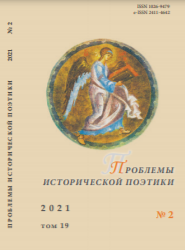Поэтика безумия у Пушкина, Гоголя, Достоевского (полемические заметки)
The Poetics of Madness in Pushkin, Gogol, Dostoevsky (Polemic Notes)
Author(s): Vladimir Nikolaevich ZakharovSubject(s): Studies of Literature, Russian Literature, Health and medicine and law, 19th Century
Published by: Петрозаводский государственный университет
Keywords: Pushkin; Gogol; Dostoevsky; poetics; madness; insanity; pathology; psychiatry; hallucinations; fiction; fantastic; fantastika;
Summary/Abstract: Madness in life, philosophy, and art are different phenomena. In medicine, a madman is an insane person and a patient, in philosophy he is a sage, in literature - a poet. Doctors treat the patient, philosophers and poets admire the freedom of his thought and creativity. Problems arise when doctors turn into literary critics, and critics diagnose literary heroes. An absurd situation emerges when doctors diagnose those who are inherently unable to express a complaint, answer questions, undergo tests or pass a clinical examination. The article offers a critical analysis of the topic of insanity in the St. Petersburg-themed short novels by Pushkin, Gogol, and Dostoevsky, and offers a response to the question of which parts of their works belong to the poetic sphere, and which - to psychiatry. Pushkin and Gogol contributed to the poetic development of the theme of insanity, Dostoevsky revealed insanity as a mental illness where “higher meaning” manifests itself. All of these authors clearly defined the boundaries of troubled and healthy consciousness. Dostoevsky completed the transition from the poetic to the realistic interpretation of madness in Russian literature. A variety of concepts of insanity has been recognized in art, and there has been a creative competition between individual interpretations of this subject.
Journal: Проблемы исторической поэтики
- Issue Year: 19/2021
- Issue No: 2
- Page Range: 92-106
- Page Count: 15
- Language: Russian

